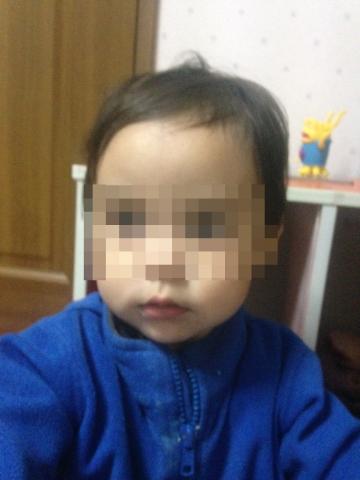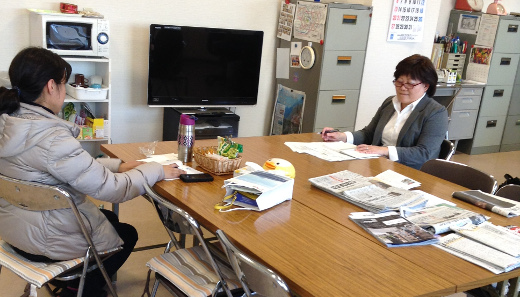 Anastasia* is from Latin America. A few years ago, she married a Japanese man in her country and in April 2015, they took their toddler son to Japan to visit his grandparents. While they were in Japan, they took their son for a general medical check-up and found out that he had a heart problem. They went to the United States and Latin America for second and third opinions, but could not decide on the best treatment for their son.
Anastasia* is from Latin America. A few years ago, she married a Japanese man in her country and in April 2015, they took their toddler son to Japan to visit his grandparents. While they were in Japan, they took their son for a general medical check-up and found out that he had a heart problem. They went to the United States and Latin America for second and third opinions, but could not decide on the best treatment for their son.
When they returned to Japan, problems arose between Anastasia and her in-laws almost immediately, such as when she wanted to keep breastfeeding her 20 month-old son. Her mother-in-law forbade her to do so, insisting on following the Japanese custom. Her husband took his parents’ side and on several occasions, even called the police after they argued about how to raise their child and the medical treatment he needed.
Anastasia was monitored by cameras inside the house and not allowed to use the telephone. She had little opportunity to go out. Her father-in-law did not speak to her at all and her mother-in-law did not allow Anastasia to be with her child except at bedtime.
About a month later, Anastasia’s husband asked her to sign a document written in Japanese. She cannot read Japanese and did not want to sign it. But he became angry and in the end she signed the document for fear that he would call the police.

In the first week of January 2016, Anastasia went out to buy dinner for her son one day and when she returned, she found her husband and son gone. When she asked her mother-in-law about their whereabouts, she said she did not know. Anastasia cried and begged her to return her child, but her mother-in-law ignored her. Anastasia contacted her embassy, but they were unable to help.
Two weeks later, Anastasia went to the hospital where her son had been treated. Unable to speak Japanese, she showed them her family registration. The hospital staff told her that her husband had divorced her and that he had sole custody of their son.
She was stunned. That very day, she went to the Jesuit Social Center Migrant Desk in Tokyo for help. The centre found her a room in a shelter and a staff member, Jessie Tayama, accompanied her to her in-laws’ house to get her things.

The centre also helped her to get her marriage revalidated. Her lawyer had originally thought her chances were low but her husband and his lawyer did not turn up for the court hearing in March and did not respond to the judge even though he gave them another month to do so.
In the third week of September, the judge ruled in Anastasia’s favour. He invalidated the divorce and awarded her custody of her son.
But there was still no sign of the child. In the second week of June, they had found out that her husband had taken their son to the US in April, and the search was still on. After much effort on the parts of overseas government bodies and the lawyers, the US police apprehended her husband at the Los Angeles airport in early October.
Finally, after nine months of separation, Anastasia was reunited with her son, and she has since returned to her home country with him.
A month later, the nightmare remains fresh in the mind of the child and the experience of the last nine months has taken a toll on his already poor health. He often cries out in his sleep, “Mama I’m scared.”
It is very easy to get a divorce in Japan. It is even easier when one party is a foreigner who cannot speak or read Japanese. In the current system, authorities do not have to confirm the consent of both parties. A final notice written only in Japanese is delivered to the address on the applicant’s residence certificate. If the spouse does not consent to the divorce, he or she can ask that the authorities not accept the divorce papers submitted by the other party. But it is usually too late when they find out about the papers, especially when the custody of children is involved. Once a divorce is recorded in the family registration, it is nearly impossible to reverse, and foreigners are particularly helpless due to the complicated Japanese legal system.
With the help of Jesuit Social Center Migrant Desk, Anastasia has initiated divorce proceedings in Japan.
* Her name has been changed to protect her identity.
Related story: Helping foreign migrants navigate Japanese law

